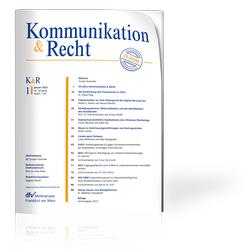Edward Snowden poses difficult questions for lawyers as well as politicians

Information is the oxygen of society. If people do not know what is happening in their society, if the actions of those who rule them are hidden, they cannot take any meaningful part in discussions about what is taking place in their society.
Secrecy allows people to hide things, it allows crime and inefficiency and hypocrisy to survive and flourish. The provision of information allows people to properly scrutinise the actions of governments and those in power and authority that influence and affect the lives of many. Journalists and particularly investigative journalists and whistleblowers are two routes to exposing such wrongdoings.
Developments in modern technology mean that the State's capacity to capture, store and use private communications is greater than ever before. This capacity, which developed exponentially during and after the Second World War when the value and power of mass communication systems was recognised and exploited first by Hitler but subsequently by other western governments who recognised at the same time the value of accessing and intercepting an adversary's communications systems and of breaking their codes.
This ability to capture, store and use private communications has had a profound impact on all of the key areas of information technology and the ability of the intelligence and security services to obtain information on individuals, groups, organisations or corporations.
The Edward Snowden revelations have challenged many of our preconceptions about how our state organisations operate, they have highlighted the dangers those very technologies that we have embraced and now feel are indispensable in our daily lives can pose.
Technology played a significant part in the detection of thoughtcrime in George Orwell's Nineteen Eighty-Four - with the use of telescreens, which could monitor the citizens of Oceania, watched by the Thought Police: "You had to live - did live, from habit that became instinct - in the assumption that every sound you made was overheard, and, except in darkness, every movement scrutinised." Almost thirty years later, Edward Snowden echoed those words when he told the journalist Glenn Greenwald he didn't want to live in a world "where everything that I say, everything that I do, everyone I talk to, every expression of love or friendship is recorded".
The Edward Snowden revelations have not only raised technological and ethical questions for politicians and citizens. They raise some difficult questions for lawyers, which any of us may in time have to grapple with, whether as defenders, prosecutors or judges. Let me ask a few that we should not lose sight of:
1. Did the NSA and GCHQ break the laws of their respective countries? Using the language of Strasbourg, are the intrusions by the intelligence agencies legitimate and necessary and proportionate in a democratic society? Have the Article 8 rights of citizens, lawyers, and NGOs been breached?
2. When the agencies collaborated to take advantage of apparent loop holes in their counterparts laws, can individual country's laws, which tend to focus only on their own citizens and actions within their own territorial boundaries, ever hope to be able to offer the necessary legal protections to their citizens?
3. Are individuals like Chelsea Manning, Julian Assange, and Edward Snowden whistleblowers and confidential sources who should be protected or are they criminals? If they were ever to come before a court how would a court regard them? In the United States, the Obama Administration has been tougher on those who leak classified information than it has been on those who have promoted and engaged in torture. It has convicted and imprisoned Manning, made strides to apprehend Julian Assange and empanelled a grand jury to investigate him, it has indicted Edward Snowden in absentia for stealing government property and violating the 1917 Espionage Act.
4. Are the likes of Laura Poitras, Glenn Greenwald and the Guardian aiders and abettors to these crimes or are they journalists exposing information in the public interest, should they be protected from legal action? In Cumpana and Mazare v Romania, the Grand Chamber of the ECtHR stated that "although sentencing is in principle a matter for the national courts, the Court considers that the imposition of a prison sentence for a press offence will be compatible with journalists' freedom of expression as guaranteed by Art. 10 of the convention only in exceptional circumstances, notably where other fundamental rights have been seriously impaired, as for example, in the case of hate speech or incitement to violence; such a sanction by its very nature will inevitably have a chilling effect."
These are just some of the challenges for us in the internet age.



